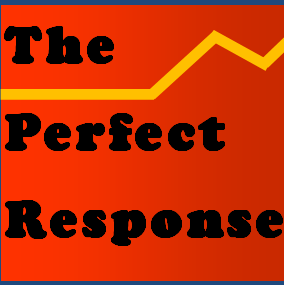Can real news reporting be shut down in Russia as completely as it has been in North Korea?
Many of us studying modern communications patterns have confidently affirmed what seems like the obvious point that digital media have made political boundaries much more permeable. In a word, national borders mean far less than they used to. The follow up is that most frontiers are now pierced by social media, internet access, and personal media in the form of phones and digital files. The files in phones and other devices are an interesting case. Some are so small you can lose track of their tiny memory chips within them. A person can travel with an encrypted SD card or thumb drive that will probably not be detected by border security.
It was easier for totalitarian regimes at the height of the cold war to jam short wave broadcasts or confiscate the magazines and newspapers of travelers. Yet, even with these older media forms bled their content into Soviet-controlled East Berlin. Residents there couldn’t help but notice the relative freedom and prosperity of their neighbors on the other side of the wall.
True, the additional example of North Korea is a special case. It sits under a total blackout as dense as the concrete and steel sarcophagus that contains the radioactivity of Chernobyl’s power plant. But the North has had a lot of time to lock down its tightly closed society. And yet K-pop and some news from the south still gets in. For its efforts at isolation, North Korea has paid the high price of a mostly impoverished population.
Russia is different. After the disintegration of the Soviet state, Russians got a taste of western affluence and a semblance of diversity in some of its news media. For a time, Vladimir Putin seemed to be following the path of Mikhail Gorbachev in warming to European neighbors to the West.
 But in recent years Putin’s persistent belief of post-Soviet humiliation has changed everything. Using the thinnest of pretexts to invade Ukraine, his current march backwards into the deep-freeze of the Cold War is a play to a persistently quiescent Russia for an expanded national identity that is decades out of date. The fairy tale of a “special military operation” requires that residents never call it the bloody “war” that it is; instead, the rest of the world has to witness what they cannot be shown. And so a new Iron Curtain has descended, testing the permeability thesis many of us so confidently made.
But in recent years Putin’s persistent belief of post-Soviet humiliation has changed everything. Using the thinnest of pretexts to invade Ukraine, his current march backwards into the deep-freeze of the Cold War is a play to a persistently quiescent Russia for an expanded national identity that is decades out of date. The fairy tale of a “special military operation” requires that residents never call it the bloody “war” that it is; instead, the rest of the world has to witness what they cannot be shown. And so a new Iron Curtain has descended, testing the permeability thesis many of us so confidently made.
In the new media clampdown reminiscent of China’s “Great Firewall,” millions this week have been blocked from online access to Facebook, Instagram and other platforms. Instagram alone had 60 million users in Russia. But with threats of years in prison for even carrying an antiwar sign, most Russians may well succumb to what has become another turn in the cycle of exchanging personal freedom for the dubious comforts of living under a strong leader.
Current threats of punishment and jail time for simply describing what is going on in Ukraine have also required the partial closures of the not-easily-intimidated foreign press. Among others, CNN and The New York Times concluded that their reporters would be jailed if they remained.
It’s hard to get a clear picture of how tight the embargo of information from western news sources is. It seems to change by the day, but it is clear that many Russians have far less exposure to honest reporting about the atrocities carried out in their name. And at least for now, too many are cowed into believing the phony news promoted by government “news” sources.
I’m still convinced that, in the longer run, this wall of censorship will be pierced via internet VPNs, routine phone use, and through media that travels, as it used to in Soviet times, from person to person. Remember eastern bloc samizdat in the 1980s? This kind of self-published news was passed around to voracious Russian readers. Samizdat was one reason the old Soviet bloc feared copy machines in businesses. Users were required to notify an official “hammer man” when it had reached the end of its life. He would be sure it would not become a printing press.
In the meantime, travel in and out of Russia may take communications back to an earlier definition: the transportation of information from place to place. That will happen at least until the devolving situation makes even more citizens realize that they have again become prisoners in their own borders.
![]()



